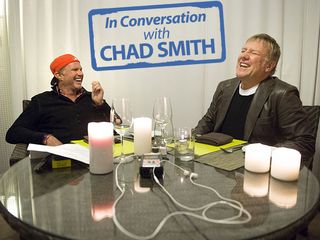
In conversation: Chad Smith with Alex Lifeson - in pictures
MusicRadar's new podcast series, In Conversation with Chad Smith, got off to rousing start when it debuted last month. Music fans of all stripes found Chad's extensive chat with Rush guitarist Alex Lifeson to be thrilling, fascinating and highly entertaining.
We would like to thank Chad and Alex, along with Laura Glass, Meghan Symsyk and Jerome Brunet, for making In Conversation such an incredible success.
There will be more guests and more installments soon, but in the meantime, we present a photo gallery of In Conversation: Chad Smith with Alex Lifeson, which also includes sound files of all four installments and transcript excerpts.
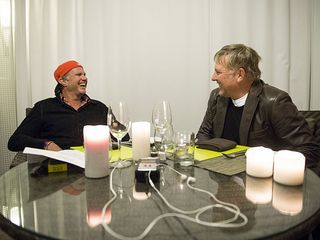
In conversation: Chad Smith and Alex Lifeson - in pictures
Discussing Alex Lifeson's signature guitar.
Smith: You've got a Gibson Les Paul, that is a signature?
Lifeson: Yeah, sure.
Smith: And how is it different from the Les Paul?
Lifeson: Well, it starts out –
Smith: And how cool is that?
Lifeson: It's really cool. When I was a kid, when I first started playing, I started playing guitar when I was about 12. So when I was about 13, 14 years old, there was a Music Store in Toronto called Long & McQuades. They were right downtown, and we lived up in the suburbs. I would go down every weekend, every Saturday, and I would take either a Les Paul or an SG off the wall, and I would play it for, like, an hour. And this goes on at music stores all over the world.
Smith: Yeah. People playing Stairway To Heaven – badly.
Lifeson: They would let me play for about an hour –
Smith: Plugged in?
Lifeson: Usually not plugged in. And then somebody would come over and say, "OK, kid, put the guitar back on the wall and beat it."
Smith: "You're gonna buy that?"
Lifeson: And then I'd come back the next week, and I'd do exactly the same thing. I was doing that week after week after week. And it was the same story: "OK, kid, beat it." But you always came back, and they always let you do it.
Smith: That's nice of them.
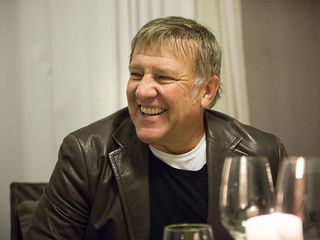
In conversation: Chad Smith with Alex Lifeson - in pictures
Lifeson: I dreamed of having a Gibson. I had a cheap Kent – you know, a Japanese guitar – and then a Kanora, a Japanese guitar. I borrowed a friend's Harmony for years. To have a Gibson was really, really my dream as a kid.
Smith: Of course.
Lifeson: So, all these years later – all these decades later – to have a signature model with my name on it, that's part of the Gibson family, that's really a cool thing. I'm very proud of that.
Smith: That's really cool.
Lifeson: And we didn't just stick my name on a guitar that could sell a bunch; we spent a lot of time. We spent a couple of years developing something that really worked for me. We went through a lot of body weights, different types of wood. The chambering on this particular guitar is one of the reasons why it's a lightweight version of a Les Paul. And the body is –
Smith: The '59s were light, right? Wasn't that the thing about them?
Lifeson: Yeah, you can get different weighted bodies.
Smith: That's why everybody sort of liked – that's one of the reasons they liked it.
Lifeson: Oh, that period, yeah. 'Cause I've got a couple of guitars, a couple of Les Pauls, that I bought. I have an early '90s Custom – that thing must weigh about 85 pounds. It's so heavy. But with my guitar, I wasn't that keen on the chambering; I wanted something that was somewhere in-between a standard Les Paul and what the Axcess model provided. It was narrower – the idea was that it was narrower, lightweight. We wanted the density in the body for sustain.
We went through a couple of different types of pickups, wiring, until we achieved the kind of tonality that I wanted. I wanted a Floyd Rose vibrato arm, something that locked, that would stay in tune, for sure.
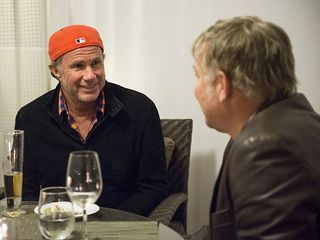
In conversation: Chad Smith with Alex Lifeson - in pictures
Discussing Led Zeppelin.
Smith: I was just walking in here, and I saw a picture of Jimmy. There are a lot of rock pictures at [directly into the recorder] the Sunset Marquis, where we're at… I know that he's maybe your biggest influence on the guitar.
Lifeson: Yeah, for sure.
Smith: He's like Jimi Hendrix. They never take a bad picture. They always look so fucking cool!
Lifeson: [Laughs] Yeah.
Smith: And Jimmy's clothing… like, some guys can look a little dated maybe. You can tell, "Oh, that's from that era." He always was very… whether it's the dragon thing, he just always looked really cool. I mean, Hendrix, to me, is maybe the coolest-looking – not only probably the most amazing musician, but he looked great. Page just always… I can see, if I was a guitar player…
Lifeson: That's the guy.
Smith: Jimi Hendrix, it goes without saying. But Jimmy Page… when you were a kid, was that… ?
Lifeson: I remember… Zeppelin, of course, were a huge influence. Seeing him then – and I knew who he was before that… The Yardbirds and the session work that he used to do…
Smith: Did you know about his session work prior to him being in Led Zeppelin?
Lifeson: Oh, yeah. When we were kids, we lived off music. Yeah, we read everything –
Smith: Which you can't do anymore. It sucks!
Lifeson: Yeah. It's completely different. I hate to sound like an old guy, but we kind of lived through the golden age of recording – just the whole industry and the way things worked. But Jimmy Page definitely had something about him. There was even that period – what was it, the Houses Of The Holy era? – where he had that really shabby look. He had a beard and a trench coat.
Smith: Yeah, yeah!
Lifeson: But he still looked really awesomely cool! [Laughs]
Smith: It was a little before that, I think. I think it was right before Zeppelin IV, right around that time. They were all workin' the beards. Plant had a little –
Lifeson: That's right. But they still looked very cool.

In conversation: Chad Smith with Alex Lifeson - in pictures
On the state of music now vs. then.
Smith: It's so different. To me, what's kind of sad is that, one aspect of it, is that both of our groups would have never been able to grow and have the opportunity to suck for a while – not even suck but just to learn –
Lifeson: [At the same time] To learn –
Smith: – and get better, three records, four records, that would be unheard of today. If you didn't sell your x amount or whatever, then "sorry," and bands would break up. They're not nurtured like they once were, which is sad because you miss out on bands like U2 and REM and Rush and Chili Peppers. You know… we were doing the best we could do, obviously, but the public wasn't on board the way that the industry thinks about it. And people would have missed out on all that great music. It's kind of sad…
Lifeson: Well, record companies were developers then, and now they're speculators.
Smith: Bankers. Bottom line.
Lifeson: Basically, you have to make your own record and shop it to them [Smith laughs], and if it does OK, then they'll sign you. There's no commitment or help from them. Our first deal was for five records. The idea was that the first two records would be those starting points; and maybe on the third record it kind of turned around and the record company would make a little bit of money. Everybody would be moving forward. And the next two would be those stronger commercial records.
Smith: What that like a plan?
Lifeson: I think that was the plan then. And it makes sense on the curve of the five records. This is sort of the mid-point, the third one, and the next two, everybody's laughing –
Smith: [Laughs] "We love everybody!"
Lifeson: But that… that can't happen.
Smith: No, it doesn't happen. I just wonder what we're missing out on.
Lifeson: We got to experience it. It's all the young kids now who are missing out on it. But at the same time, for fear of sounding like an old guy – "arrggh, get off my lawn!" deal [Smith laughs] – it's a different world that is their world, so they work it accordingly. They don't feel, I'm sure, that they're missing anything, just like we didn't feel like we were missing out on anything.
I don't know how many times I heard older people, and not just parents but just older people, say, "Oh, my God. Your generation is just totally nuts. You have no sense of what it was really like, when it was great." And every generation has that same feeling, you know?
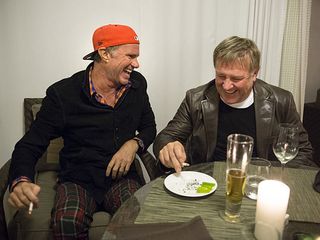
In conversation: Chad Smith with Alex Lifeson - in pictures
Discussing Lifeson's painting.
Smith: And you paint? I didn't know you were a painter.
Lifeson: I'm not really.
Smith: You Renaissance man.
Lifeson: I really enjoy it. I love it. I enjoyed art in school. I've always done little drawings and stuff like that. I don't really know what I'm doing with the painting, but I experiment. I got into it about six or seven years ago. I got a request from the Kidney Foundation in Canada to get involved with their... with a program that they run annually, where they get different celebrity artists.
Smith: Then they auction them?
Lifeson: Right, they auction it. It's called… Brush of Hope, I think. I did a painting, just a little acrylic painting on the little board they send you, with the little paints that they give you.
Smith: Did it have numbers on it?
Lifeson: No numbers. It sold for $7,000 or $8,000. I was so thrilled, as they were.
Smith: [Claps] I bet. Do you want some peppa?
Lifeson: Sure. Most of these things sell for between $25 and $100... thank you. It was a pretty big deal. They asked me to come back, and I thought, "For sure." This is a great idea. Since then, I now buy my own canvasses. I do bigger canvasses. I spent a couple thousand dollars on paints, so I can do some really decent-quality work. I still don't know what I'm doing.
Smith: So what?
Lifeson: I'm still experimenting. A lot of stuff, I kind of redo and paint over. But it's getting there. I really enjoy it.
Smith: Do you have a studio at your place? What do you do?
Lifeson: I sit at the table… the dining room table.
Smith: Not like …
Lifeson: No. I laid out a bunch of newspaper, and set everything up where it's nice and sunny, and a couple of lamps when I'm working in the evening. I got a little tabletop easel, so I can set it up there, and get a different perspective on it.
Smith: That's so cool.
Lifeson: The last one I did …
Smith: You could start painting guitars.
Lifeson: You know, I was asked to do that, again for a charity. There's something about working on a canvas that makes it realer. It takes it out of what the other thing that I do.
Smith: Yeah, that's true. That makes sense. I get it.
Lifeson: In fact, they ran a series of an earlier painting, and it got prints and sold a few hundred, for $100 or something.
Smith: You can retire.
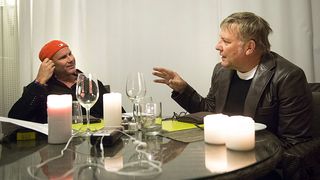
In conversation: Chad Smith with Alex Lifeson - in pictures
Discussing Lifeson's flying.
Lifeson: I got my license in 1980, and then I was so keen after I got my license. It was a challenge. We were touring a lot back then. We were gone for long periods of time. It took me a year to get my license, because I couldn't fly. I was away a lot. When I was home, I went as much as I could. Winter, it's minus 30 – that's when winter was winter, and you aren't going to fly on those days. It's just too cold.
I was so into it. I wanted something that would challenge me, that I would do that would, again, be different from being on tour and playing and all of that stuff, and force me to be very responsible about what I was doing, and the application of this thing that I was learning.
After I got my license, I got my multi-engine rating. I got a float rating, I got a night rating – I got basically everything except my instrument rating. I have lots of instrument time, but... this is something that he should be aware of, too, and he probably is. Unless you're going to be really serious about your instrument rating, and really work towards it and keep it current, then you're better off to not get it and just be a recreational flyer when it's sunny and nice outside, and go and enjoy it.
Smith: You can't fly at night if you're…
Lifeson: You can get a night rating to fly at night. For an instrument where you're in cloud and those sort of things, things can happen so, so very quickly. If you don't have the experience, and you're up to date with it, it can be extremely dangerous.
Smith: I think the Kennedy had …
Lifeson: John Kennedy is a perfect example. He went out at dusk. He figured, "It's still light outside. I can get there, just as it's getting dark. I'll be fine." He had a fair bit of experience, but not a great deal, and no instrument – from what I understand – no instrument experience. The thing is, at dusk, that's maybe the worst time because there's no horizon. That's what happened. He got disoriented, because he couldn't see the horizon. Even though it wasn't night... he's looking for this, and he's not looking at his instruments. What he should have done, as soon as he sensed any kind of problem, was to immediately turn back and go back to his departure airport. But you know, that's not the way guys think, mostly.
Smith: Yeah. "Oh, I can make it. I want to get there."
Lifeson: It happened so, so quickly.
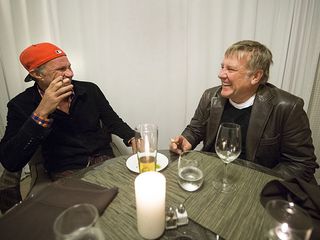
In conversation: Chad Smith with Alex Lifeson - in pictures
On guitar effects.
Smith: I know that you're like "gadget guy." You like, I think… correct me if I'm wrong… pedals, and things that go "ping"? You like all that stuff?
Lifeson: I love all that stuff. I've always been interested in that sort of thing, right from the very beginning.
Smith: From your sound, or in your mind, what you're trying to... I know it depends on the music and where you're at, and what you're writing and stuff. How much does it dictate? Is it after the fact? You're in the studio and the song is developing, and like, "This is going to work?" Or can it be from the beginning, like The Edge, his thing. It happens both ways?
Lifeson: That's a great question. I think probably in the past, I would utilize effects or tonal shaping, more from the beginning. Less so now, because I really believe that the core of the song should work, no matter what you do.
Smith: You can play it on acoustic or whatever.
Lifeson: Exactly. That's the real test, is on an acoustic. If it works on an acoustic, it's going to work no matter what you do. It's easy to get caught up in the technology and be enamored by the sound of something. But it's just that – it's a superficial thing. It's not deep inside what makes the song a song, and makes it compelling. I've moved away, much more. It's more of an afterthought now. I've always been ensconced in the technical end of it, from a wah-wah pedal, to a fuzztone in the early days.
Smith: That's probably all you had. What were your first effects?
Lifeson: My first effect was the Fuzz Face Fuzztone. I remember, I used to plug my guitar into the back of my parents' TV. [Smith laughs] It had a little RCA input. I don't know why that input was there.
Smith: Was it distorted?
Lifeson: Oh, yeah, it was distorted before I even put the Fuzzface in. [Smith laughs] Then I got a wah-wah pedal, a CryBaby wah-wah pedal.
Smith: Jimi Hendrix had one of those. Gotta have it. Page…
Lifeson: Yeah, all those guys. Clapton when he was in Cream – White Room. I mean, there was lots of wah-wah. The Echoplex was the big one, and then the chorus pedal changed everything in my sound. I came to really rely on that from the mid-'70s on.
Smith: Chorus pedal?
Lifeson: Yeah, it just makes things bigger, especially in a three-piece. It makes it wider.
Smith: Crutch.
Lifeson: It can be a crutch. [Smith laughs] It can be. Delays can definitely be more of a crutch, because it masks insecurities and inaccuracies. Playing in this band with Neil and Ged, they're so active. You need to do something that kind of fills... it's the glue.
Smith: It's the situation. Certainly early on, before Geddy got into the Taurus pedals and keyboards, you were... that was it, as far as real melody. That was your job. You had a big job, a big thing to do.
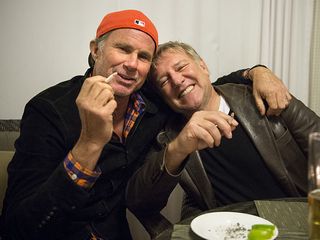
In conversation: Chad Smith and Alex Lifeson - in pictures
On Neil Peart returning to drumming after personal tragedies.
Lifeson: Yeah, that was a tough album, that one. After everything that he'd been through, it was so delicate and fragile. Honestly, he hadn't played in a few years. Once he'd played, in three years, and he barely got through that playing session. He talks about it, and how he broke down when he was playing, and really never wanted to play again, and didn't think he could. When we came back into the studio… he just was not anywhere close to being the same drummer that he was. He couldn't play.
Smith: That's the thing – you don't do it, you use it or lose it, right? Especially the way he performed.
Lifeson: You hit the drums hard. [Laughs] In different scenarios, at the club at the Orbit Room, when you played with the A Team that time.
Smith: Oh, that's right! I forgot about that.
Lifeson: It was so exciting. The tonality out of that kit – you just know what you're doing. You know the kind of pressure that's required to make the drums speak. When we were in the studio, oh, my God, he was hitting the drums at 65 percent of what he used to. I'm a pretty strong guy, and I'd go in there and mess around on his drums. I hit them as hard as I could, and it was nowhere near what he was doing in just his regular playing. I know a lot of it is technique, and how to snap your wrist or whatever it is. It was a long, arduous climb for him to get back together, to his playing speed. He did get back to it. It was a very difficult time.
Smith: He's such a perfectionist, you know? I'm sure he was just like... it must have been frustrating, to not be able to do your thing.
Lifeson: I think it was, but at the same time, I think he recognized that he'd gone through a terrible, difficult period where he just didn't play. He didn't exercise his…
Smith: Yeah, he wasn't like, "I just lost it for no reason. No, I know why."
Lifeson: There was a good reason why he couldn't do it. I think he realized that, and it was a long, hard climb to get back up. Some days, I think he was discouraged by it. Other days, he was more focused on it. Getting married, and Carrie coming into his life was really, really, really important. Carrie came up when we were there. She did that beautiful book of his hands – she's a photographer. She spent time with him, and it was therapeutic, I think, for her to be involved, and to shoot him while he's playing, and all of that stuff.
It was a very powerful remedy, I think, for him. It was important. She was there every few weeks. She would come back up and spend time with him, and be together and support him. She was the instigator in getting him back to work. She didn't know anything about the band when they met, and they got married. She basically said to him, "I don't really know a lot about the band, but what I do know is that you do what you do, and you're pretty good at what you do, from my understanding. You've got to do something with your life. Why not do the thing that you were really good at doing?"
Smith: [Laughs] That's very innocent, though, right?
Lifeson: It is very innocent. That doesn't account for all the turmoil that you're feeling, and this horrific experience that he went through. How do you eliminate, or at least dilute that emotional horror show? She was willing to support him, and lift him up. We were there all along for him.
Smith: I'm sure you guys were. That's amazing.
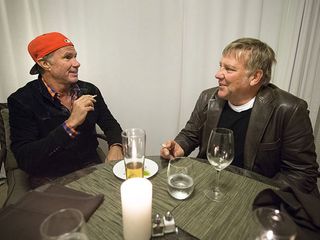
In conversation: Chad Smith with Alex Lifeson - in pictures
On Rush returning to the stage.
Lifeson: That first gig in Hartford, after coming back from all of that and making a record, there were moments where we all came together and played and looked at each other. I just had a lump in my throat. I could feel my eyes watering.
Smith: Oh, man…
Lifeson: After the show...
Smith: All the emotions, too.
Lifeson: Yeah. I'd look out in the audience, and people were crying in the audience, because they couldn't believe it was happening again. They understood the pain and everything that he'd experienced, that we'd experienced. I think in a way, it kind of makes you more human. It puts you on a more common ground with your audience.
Everybody has terrible things that they deal with. Everybody. Just because you're some big shot rock star, doesn't mean you're immune to having these awful tragedies in your life. It brings you closer. I think as a fan, it just strengthens your bond to these guys. We were all...
Smith: That's heavy, man.
Lifeson: All huggy. It was very sweet.
Smith: You guys have grown up together. It goes way beyond, "We need to play music together." Way beyond that.
Lifeson: It was interesting. I like to think that this would be the case with anybody that goes through this sort of thing, but when it happened, the band immediately became nothing. It had no importance whatsoever. It was all about helping a brother come back from the edge. I was at their house every day, after Selena had died, just helping Jackie, mostly. Other people were helping Neil. Then when he was on his quest to find solace and peace, we kept in touch. We sent e-mails, we sent faxes, whatever we could. He'd send postcards.
Smith: Yeah, the postcards. I remember reading about that in the book [laughs]. You guys would get these crazy postcards, with a couple lines on it.
Lifeson: Yeah. "I'm OK."
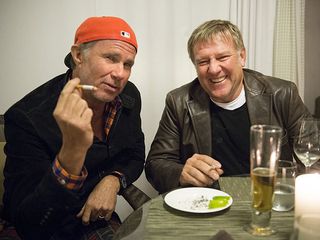
In conversation: Chad Smith with Alex Lifeson - in pictures
Smith: Real life stuff – it makes you go, "It's just a fucking rock band, for God's sake."
Lifeson: Exactly! Exactly.
Smith: People die in our group; people have trouble with drugs and personal stuff. Everybody goes through... If your first thought is, "Gee, when's the band gonna get back together?" You don't have a real connection. You have to have... I think, to play music that means so much to you guys, and therefore translates to mean so much to people that love it and listen to it and connect with it, they wouldn't be able to do that if you guys didn't have your own connection that you have.
People feel that. I do. I think the Eagles... "Well, we don't talk to each other, and we get up and play," and that separate dressing room shit and all that Pink Floyd kind of stuff; I don't want to get up on stage and play with people that...
Lifeson: I wouldn't do it.
Smith: I can't do it. It's not worth it. I want to connect. I want to engage and connect with the people that I'm playing with. I love these guys that I play with. We're lucky to be in a situation where we've been in a group with the same people, the ups and downs, and this and that. "I know he's weird sometimes, and I'm an idiot... "
Lifeson: But you can still love each other.
Smith: Exactly. At the end of the day, that love comes through.

In conversation: Chad Smith with Alex Lifeson - in pictures
On playing live.
Lifeson: We get to out and play our hearts out. We get to do just what we want to do. More and more and more, people want to see that and want to experience it and be a part of it. I think that's... for us, that's a lot of the appeal. We've always cared about the live performance and always tried to be the best that we could. We didn't always succeed at it, but always tried to be the best that we could.
Even at this late stage in our lives, and I don't know how you feel about that, as you get older and more mature in your playing, there's a comfort and a confidence, and kind of a relaxed component to your performance. It's really nice to reach that. Maybe it's the additional hours above the 10,000 hours that make that difference. I feel like we're playing better than we've ever played. I don't know if that's true or not, but I feel like we are. We're more aware of it.
Smith: I don't see how that not... other than the physicality of it, and maybe... I don't know for our group, the music has changed, and the urgency of our initial, when we used to play, everything was hard and fast. That's who we were then, and that was fun. I think that there's nothing that can replace experience. The more life experiences you have, and that goes into playing your music, the person that you are, that's going to come out, if you honestly represent yourself, right?
How can that not be more enriching to being an artist? How can that not translate out into your music? "Why don't you play songs and write songs like blah, blah, blah record?" "We did those. You can go listen to them." I'm sure you get the same thing. "How come you don't do that one like that anymore?" "Because I'm not 26, or I'm not 32. This is who we are now. This is what we do now. We love it, and we're totally into it."
Lifeson: I think it's less to do with you, or you as a musician, than to that moment, when you remember when you got laid that summer.
Smith: I do that, too.
Lifeson: We all do. We all connect to some music, at some point in our lives.
Smith: That's a great thing about art and music. It's a beautiful thing. But they do – they'll get stuck. I look at the guy, and he's wearing the same clothes he probably was wearing in high school, and I look really cool. [Laughs] "But you're 37 now… "
Lifeson: Yes, you're twice as old as you were then. It's a different world.
Smith: I'm not here to judge anybody. That thing about the experiences, good and bad – everything that life throws your way comes out. I think that that's... I love going to see bands with guys who have been together. I love to go see Aerosmith. When I was a young guy, I really liked Aerosmith. Maybe not so much... they've been playing together, like you guys, for 40 years. They've got a thing. Whether you like it or not, they've got a thing. I go, and I check it out, and I'm like, "OK, whatever. They're doing their thing." I love seeing bands or musicians that have been playing together for a long time. There's something to it.
Lifeson: Yeah, an identity.

In conversation: Chad Smith with Alex Lifeson - in pictures
Discussing playing on other artists' records.
Smith: You guys, it's a perfect example of that. How is it when you play with others? Do you enjoy doing other things? You do other records and stuff, right?
Lifeson: Yeah. Mm-hmm.
Smith: I know it's completely different.
Lifeson: It's completely different. It's an exercise in… your skill as a player, and as an arranger and a songwriter. When I play on somebody else's music or record, I feel so much freer than when it's our own stuff, for some reason.
Smith: No pressure?
Lifeson: Yeah, there's no pressure, I guess. You're here interpreting someone else's interpretation, and you don't really have to... it's not your identity. It's kind of funny. You can afford to experiment and try different things. I always provide alternates to whatever I do. "Here's one idea."
Smith: "If you don't like this one… " [Laughs]
Lifeson: A few more different takes – "I like this one, too." Whatever you like and where it's going. That's a fun thing to do. I love doing that. I would play on stuff all the time if people would ask me or if the opportunity exists.
Smith: Do you think, because you're in the group, they think like, "He's… "
Lifeson: He probably won't want to do this.
Smith: "He's busy. He's doing his thing." I get that, too.
Lifeson: "No, there's no way he's going to play on our record."
Smith: [Laughs] I'll be like, "I'd love to."
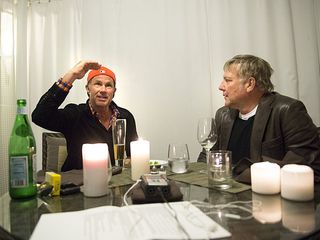
In conversation: Chad Smith with Alex Lifeson - in pictures
On kids and grandkids.
Lifeson: It just gives me such a sense of completeness. I never, ever don't want to see them. I'm never too tired. I'm never too whatever to not see them. Even though I know they're going to come over, they're going to kick the shit out of each other with their karate and all that stuff, and not want to go to bed until 11 o'clock, I still cherish it and so enjoy it.
Smith: They're going to grow up quick.
Lifeson: And they're not going to want to hang out with you. It's normal.
Smith: Fuck, no. In, like, three or four years, it's normal. He's going to be 13, he's going to be like, "Give me some money, and I'll see you later."
Lifeson: Yeah, and I'll give him the money, and I'll see him later. [They laugh.]
Smith: My brother's two years older than me. He has kids that are older. He's like, "Chad, you're just an ATM and a taxi service. That's all it is." As soon as they're 15, 16, they don't want to hang out with you. You're not cool. "Can I have some money?"
Lifeson: You were there. You know what it's like.
Smith: Totally. I go, "Brad, that's normal." He said, "I know, but man, you know..." Do what you can. It's hard. Those years, they fly. Cole just turned eight. I can't believe he's eight years old. He's talking about presidents and stuff. It's amazing. Yeah, you're right. I have to get out of my self-centered... Chad's world. Sometimes I can really put my Chad world thing on, like, "I want to do this." I've got to work on that.
Lifeson: That's balance. Everything is balance. There could be worse things to balance.
Smith: That's true.
Lifeson: Like waking up. [They laugh.]
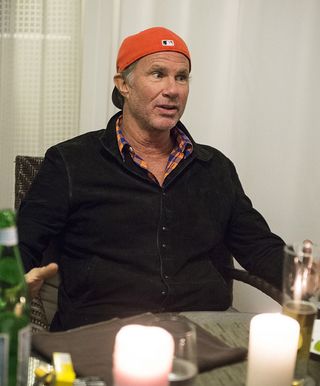
In conversation: Chad Smith with Alex Lifeson - in pictures
On the Rock And Roll Hall Of Fame.
Lifeson: I think there's been such a controversy with us, with the Hall Of Fame. It'll be nice for them as well as us to put it behind us.
Smith: Yeah, put that behind you. But enjoy it though, if you can.
Lifeson: Yeah, we will.
Smith: It's kind of cool. I think you'll like it. It was in Cleveland last year, which was kind of cool. There were a lot of fans that made it better. Performing-wise, it was six hours. Industry people... you've been to those things. They sit at the table, and it's like a long wedding or something. The fans kept it going.
The next night, we went to the Hall, and they gave us a little tour after it closed. We went up to the thing – it's cool. Have you been there before?
Lifeson: I haven't, no.
Smith: You should go. It's pretty cool. It gives you a real sense... this is pretty historic, and there's only 700 and so-odd many people in there. You go up on the top, the third floor. They have the hall where everybody's names are engraved there. It's kind of dark; there should be music on. You walk down the hall, and I'm looking at all these names… "Wow…" Hooker and all these people.
Lifeson: You're history.
Smith: We're going to be right next to each other. You get down to the Rs, and it was my name right below Keith Richards of the Rolling Stones, and the Ramones. I was like, "Get the fuck out! This is not happening!" It was ridiculous… When you see it.
Lifeson: You feel the impact.

In conversation: Chad Smith with Alex Lifeson - in pictures
On producer Nick Raskulinecz.
Smith: So Nick's your guy now?
Lifeson: Well, for these last two records. We really enjoy working with him. He's a really, really great producer. He's a great producer for us. He's so enthusiastic.
Smith: So enthusiastic.
Lifeson: He's got such a keen sense of music and arrangement. You can't bullshit him.
Smith: He knows music.
Lifeson: He gets it. When he gives you his comments, you know that they're valid, real kind of comments. He's not just saying it.
Smith: "I feel I've got to say something." Sometimes he goes, "You know what? I love it."
Lifeson: I will say, almost every time, he's right in the point that he brings up; at least there's validity to all his criticism and comments. Some of them you don't act upon. You could go either way on them. I think the function of a really good producer is to be able to do that; to give you options and ideas, and take you to other places –
Smith: That you wouldn't have thought of.
Lifeson: You're so focused.

In conversation: Chad Smith with Alex Lifeson - in pictures
On producer Rick Rubin.
Smith: He's just such a lover of music – all kinds of music – as we are. We have that in common. We've been working with him so long. He knows us so well. Often, we'll be writing our songs and getting them to a certain point where we feel like, "OK, it's time to play them." We'll talk about other guys: "Maybe this guy would work…Brian Eno… or this guy or that guy." So far, we go, "You know what? Rick's gonna be the best guy." Rick's gonna come, and he's going to give us…
Lifeson: The things you need.
Smith: Yeah. That objective… It's funny sometimes. I don't know if this happens for you, but we'll have our songs in their sort of rough... "That part goes eight times, we really don't need that." [Laughs] When you jam, with us…
Lifeson: You're into it.
Smith: You're into it. "Wait until you hear this one." We'll think it's the fucking best thing that we have. He'll be on the couch, very laid back. It's exactly right, he's not a jump-around kind of guy. He's listening. He's always listening. We'll play him this thing that we all love. We think this is the freshest, greatest thing we've done, and he'll go, "What else have you got?" [They laugh.] We'll be like, "What?! That was amazing. This is going to be the greatest thing ever!" "You've done that before. I heard that on Californication. It's good, it's good…" We're like, "Ohhhh! Are you sure? You want us to do it again? I think maybe I played it too fast." But fuck if he's not right.
Lifeson: Yeah. Then you come up with something that's better.
Smith: He's always like, "What else you got? What else you got, what else you got?" We don't like to really play stuff until there's at least two parts and a bridge, or something.
Lifeson: That's a song.
Smith: It sounds like it's more than just one thing. We'll play something that we came up with on Tuesday. "This is one thing that we did, but we don't really have anything for it." We'll play it, and he's like, "That… that's fucking good!"
Lifeson: "Start there."
Smith: "Make a song out of that." It's something we were probably going to throw away. He's worth his weight in gold. You're like, "OK," and sure enough, that will turn into something. He's very musical, and then he's really good with arrangement. He's really good at turnaround and…
Lifeson: Trimming.
Smith: We need a lot of trimming.
Lifeson: Yeah, we all do.
Smith: Or else…
Lifeson: 'Cause you're grooving on this thing – "This is awesome."
Smith: [Laughs] "This is going to come in here; it's going to make it really great."
Lifeson: He's sitting there like, "When is this part going to end?"
Smith: Yeah, he's like, "It's great, get to the chorus."
Lifeson: "This is a link to the bridge." "Really?"
Smith: "That would be a good outro... [They laugh.] You're like, "Fuck!" Not in any sort of …
Lifeson: No, in a constructive way.
Smith: Totally in a constructive way. I'm like, "Goddammit, he's fucking right." With me, he'll be in the control room; he likes to lie down actually on the couch. He's got the talk back on. We're playing our hearts out, trying to get that magical take. The worst is the long pause after the take. Instead of, "Great! It sounds great, I love it, that's great." When you really have a long pause after you finish… "Uhhh, the turnaround after the second chorus, did you always do that?"
Lifeson: "One time before when you did it, it was really good. Not now."
Smith: "Did you always do that? Did you play all that, Chad?" Or, "That's great. Chad, can you come in here?" It's like the teacher. [Laughs]
Lifeson: Yeah. "OK, come on in."
Smith: "Bring your stuff."
Lifeson: "You need a break."

Joe is a freelance journalist who has, over the past few decades, interviewed hundreds of guitarists for Guitar World, Guitar Player, MusicRadar and Classic Rock. He is also a former editor of Guitar World, contributing writer for Guitar Aficionado and VP of A&R for Island Records. He’s an enthusiastic guitarist, but he’s nowhere near the likes of the people he interviews. Surprisingly, his skills are more suited to the drums. If you need a drummer for your Beatles tribute band, look him up.

“The verse tricks you into thinking that it’s in a certain key and has this ‘simplistic’ musical language, but then it flips”: Charli XCX’s Brat collaborator Jon Shave on how they created Sympathy Is A Knife
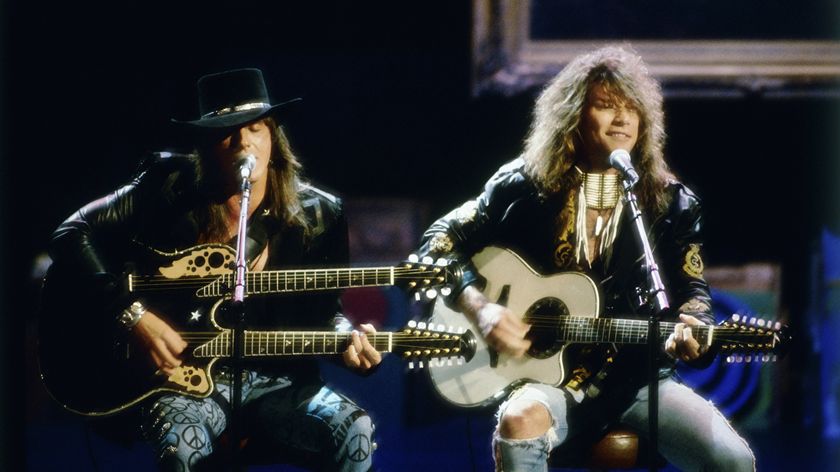
“I’ve seen a million faces and I’ve rocked them all!”: Was Bon Jovi’s 1989 acoustic performance really the inspiration for MTV Unplugged?

“The verse tricks you into thinking that it’s in a certain key and has this ‘simplistic’ musical language, but then it flips”: Charli XCX’s Brat collaborator Jon Shave on how they created Sympathy Is A Knife

“I’ve seen a million faces and I’ve rocked them all!”: Was Bon Jovi’s 1989 acoustic performance really the inspiration for MTV Unplugged?
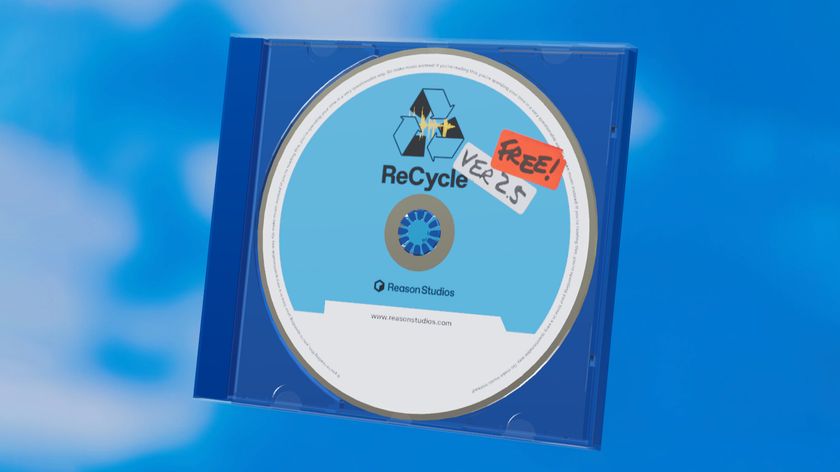
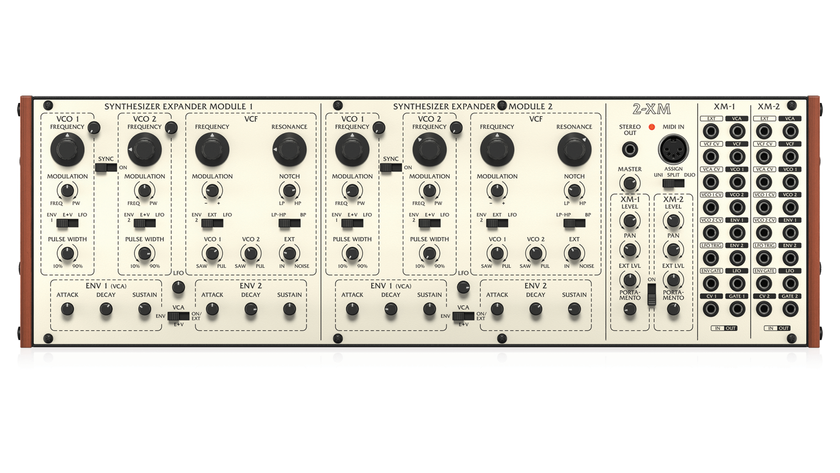
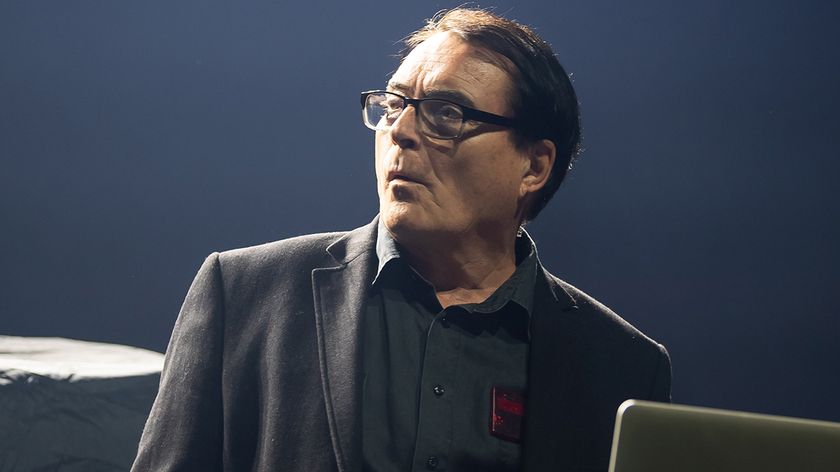
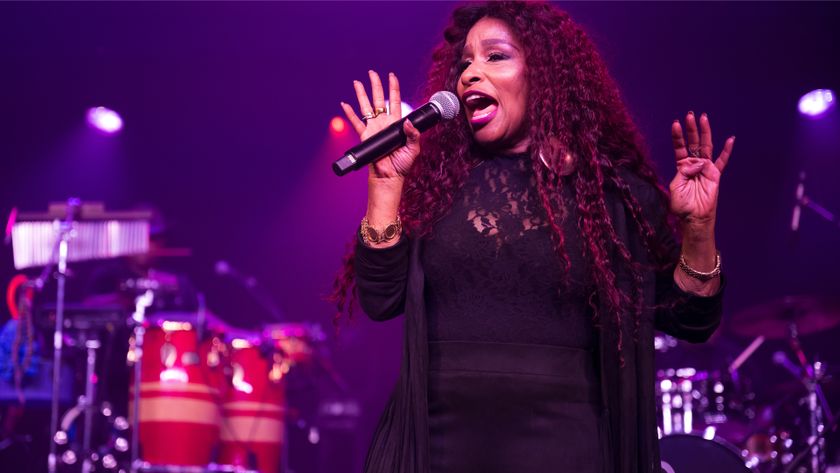
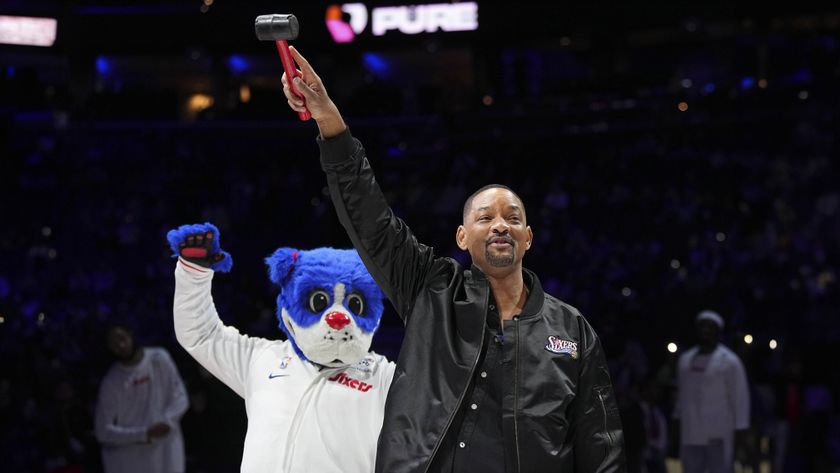


![Chris Hayes [left] wears a purple checked shirt and plays his 1957 Stratocaster in the studio; Michael J. Fox tears it up onstage as Marty McFly in the 1985 blockbuster Back To The Future.](https://cdn.mos.cms.futurecdn.net/nWZUSbFAwA6EqQdruLmXXh-840-80.jpg)